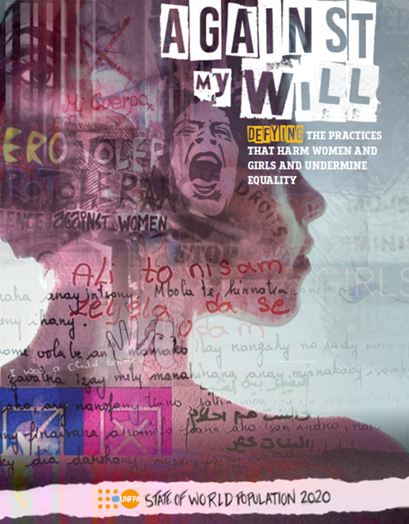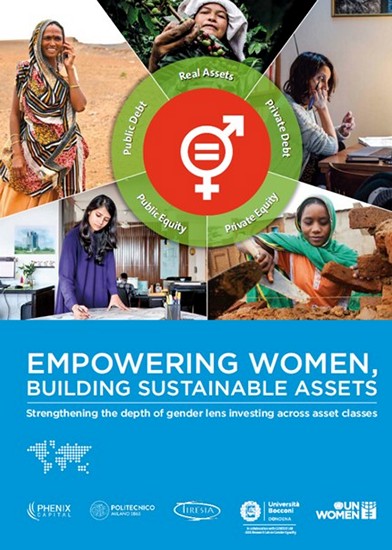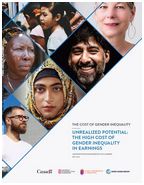Widespread violence & mistreatment of women in childbirth are human rights violations that must end, Says UN SR VAW
Извор: WUNRN – 09.10.2019
GENEVA (7 October 2019) – Mistreatment and violence against women during childbirth are widespread and systematic human rights violations that continue to blight the lives of women across the globe and must be stopped, says UN rights expert Dubravka Šimonović.
“Women giving birth have the right to receive dignified and respectful care free from violence and mistreatment, yet the reality of millions worldwide who have finally spoken up is quite the opposite,” said Šimonović, the Special Rapporteur on violence against women, presenting a report to the UN General Assembly.
“Women are suffering violations ranging from verbal abuse, sexist behaviour and profound humiliation, to physical violence such as unnecessary, compulsory and routine medical procedures carried out without full and informed consent.
“Some undergo invasive surgical treatments without anesthesia, including unnecessary episiotomies, surgical removal of the placenta and suturing after birth. They may also suffer violations of privacy and physical abuse.”
“Women are often silenced because of fears of taboo, shame and the belief that childbirth is an event that requires suffering on their part.
“These are not sporadic events but part of a continuum of the gender-based violence that occur in the wider context of structural inequality, discrimination and patriarchy, and this widespread, systematic violence and mistreatment of women in childbirth must end.”
Since 2015, new social movements demanding women’s rights in reproductive health services and during childbirth have arisen in several countries and have broken taboos and shed light on the patterns of mistreatment and violence that women suffer, showing that mistreatment and violence during childbirth are ingrained in health systems all around the world.
“The root causes of these forms of mistreatment and violence, including failing health systems, the existing power dynamics within the provider-patient relationship, as well as discriminatory laws and practice must not be allowed to impact the health and wellbeing of women during childbirth and must be urgently addressed,” Šimonović said.
“States are responsible for addressing violations by health institutions, whether committed by public sector employees or by private contractors working on behalf of the State. States also have an obligation to uphold their human rights obligations, including those under the Convention on the Elimination of Discrimination against Women and the UN Declaration on the Elimination of Violence against Women, which calls on them to pursue by all appropriate means and without delay, a policy of eliminating discrimination and gender-based violence against women, including in the field of health,” the Special Rapporteur said.
####
Ms Dubravka Šimonović (Croatia) was appointed as Special Rapporteur on violence against women, its causes and consequences by the UN Human Rights Council in June 2015, to recommend measures, ways and means, at the national, regional and international levels, to eliminate violence against women and its causes, and to remedy its consequences. Ms Šimonović has been member of the CEDAW Committee from 2002 to 2014. She headed the Human Rights Department at the Ministry of Foreign Affairs of the Republic of Croatia and was the Minister Plenipotentiary at the Permanent Mission of Croatia to the UN in New York. She was also Ambassador to the OSCE and UN in Vienna. She co-chaired the Ad hoc Committee (CAHVIO) of the Council of Europe that elaborated the Convention on Preventing and Combatting Violence against Women and Domestic Violence (Istanbul Convention). She has a PhD in Family Law and has published books and articles on human rights and women’s rights.
The Special Rapporteurs are part of what is known as the Special Procedures of the Human Rights Council. Special Procedures, the largest body of independent experts in the UN Human Rights system, is the general name of the Council’s independent fact-finding and monitoring mechanisms that address either specific country situations or thematic issues in all parts of the world. Special Procedures experts work on a voluntary basis; they are not UN staff and do not receive a salary for their work. They are independent from any government or organisation and serve in their individual capacity.
___________________________________________
Direct Link to Full 23-Page Report to the UN General Assembly 2019 by the Special Rapporteur on Violence Against Women:
https://www.un.org/en/ga/search/view_doc.asp?symbol=A/74/137



